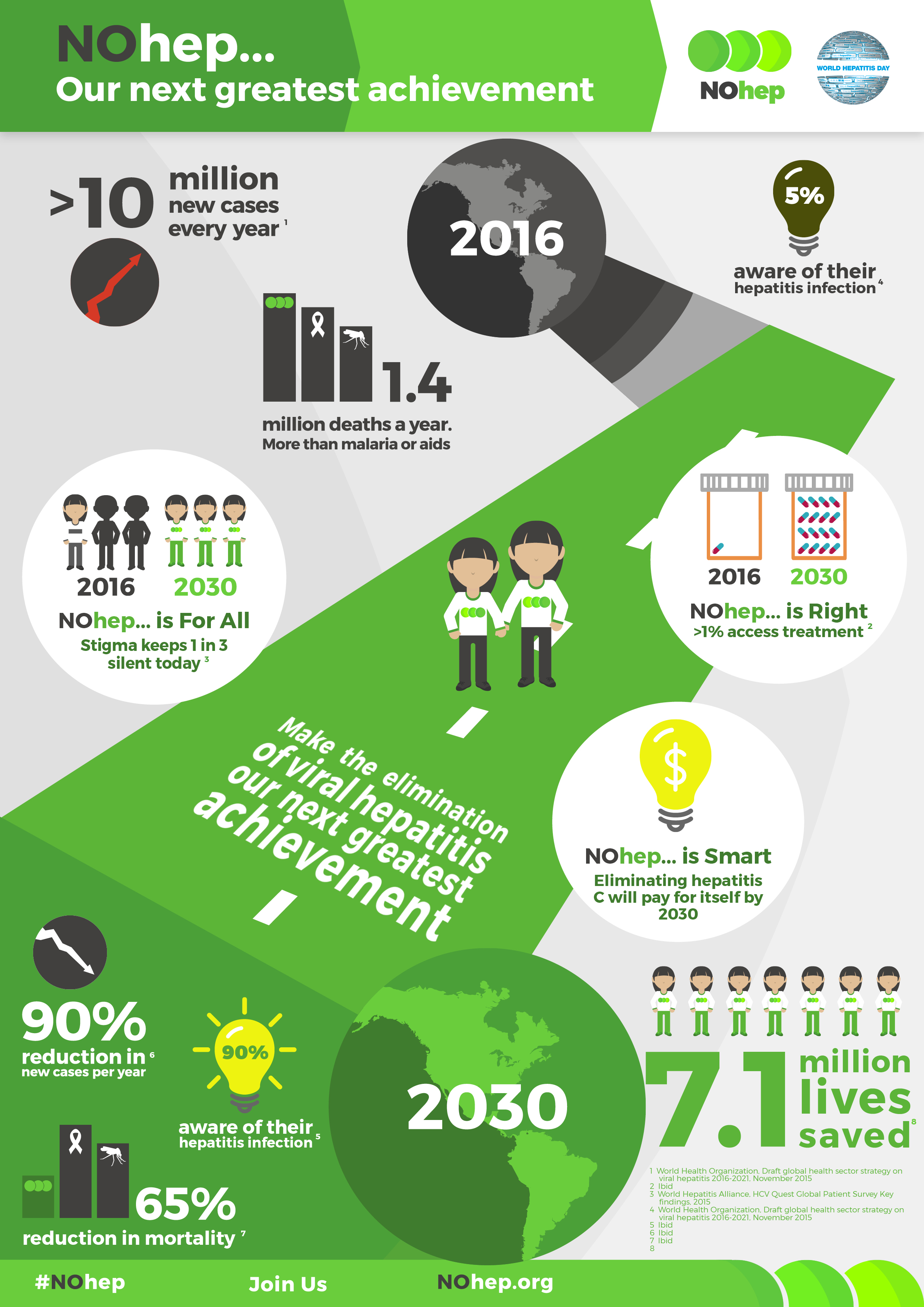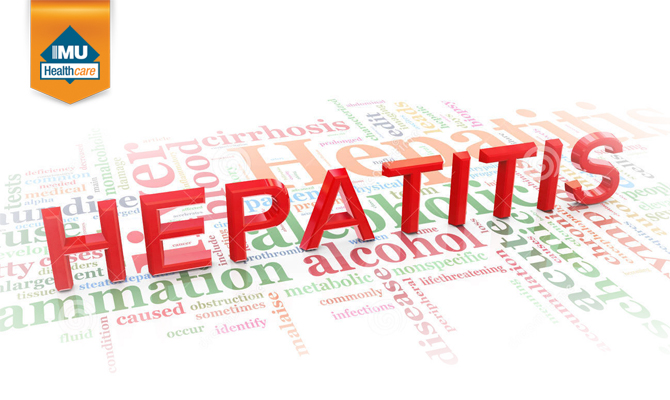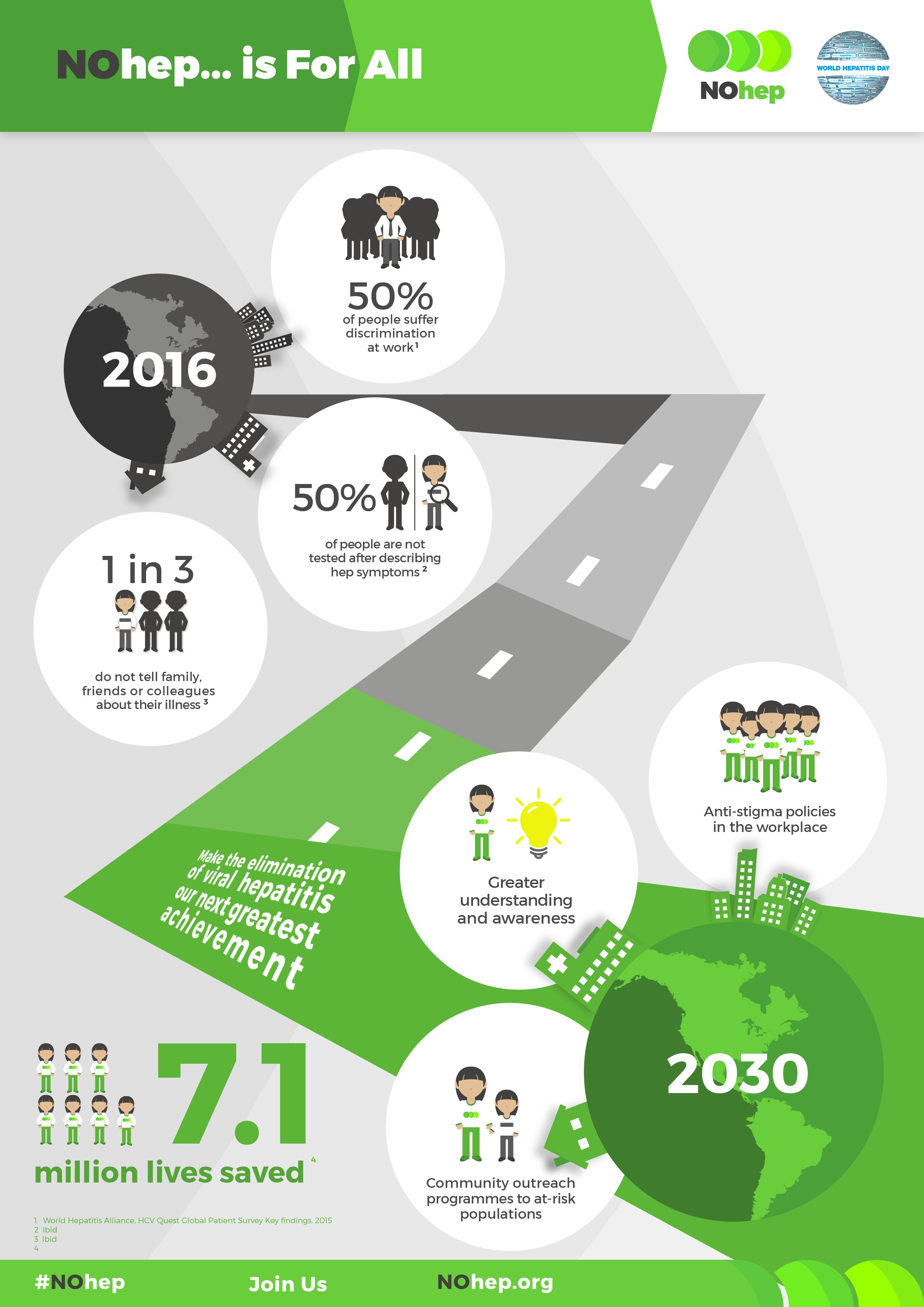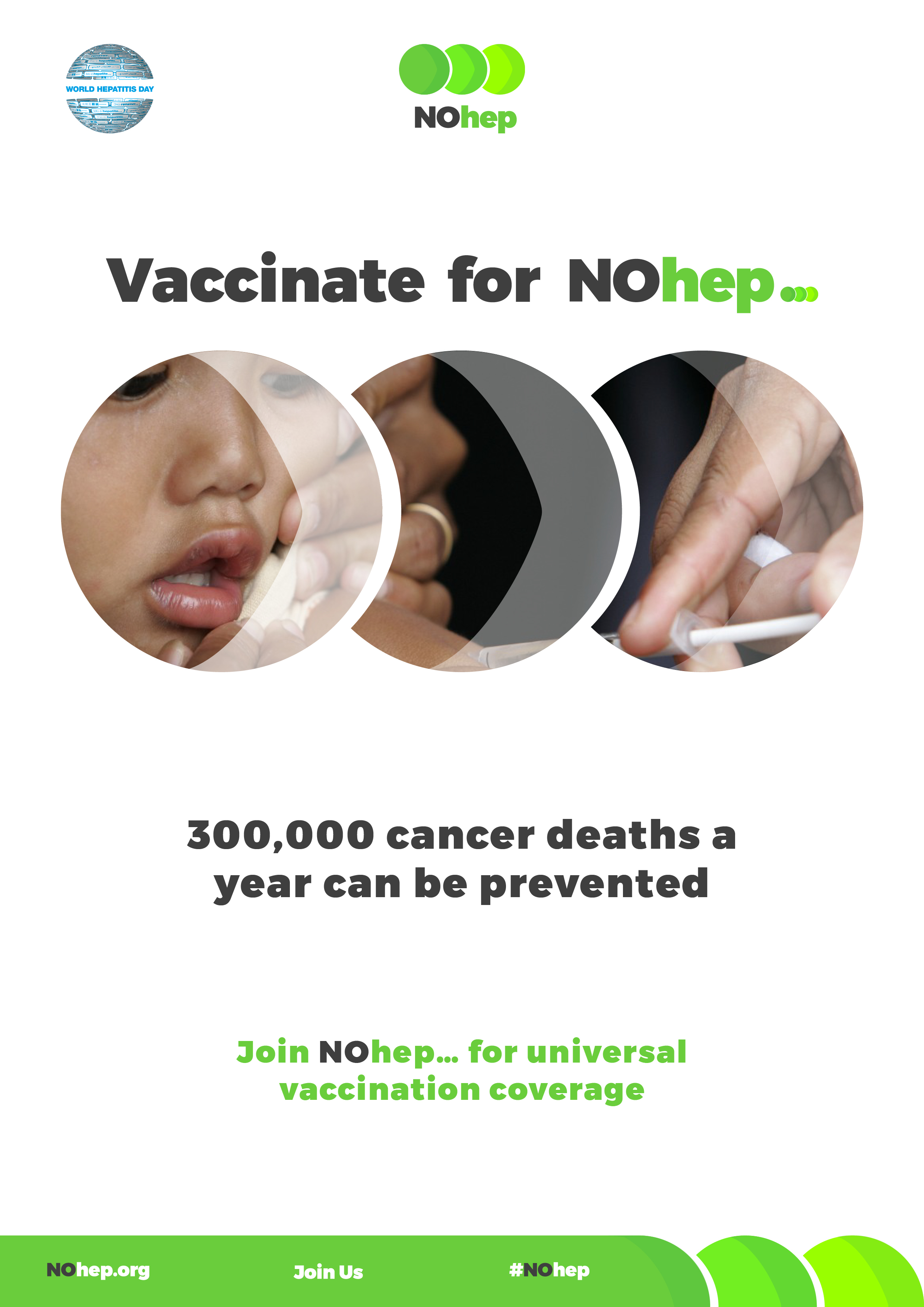A quick skim of the WHO website sees hepatitis being defined as an inflammation of the liver. The condition can be self-limiting or can progress to fibrosis (scarring), cirrhosis or liver cancer. Hepatitis viruses are the most common cause of hepatitis in the world but other infections, toxic substances (e.g. alcohol, certain drugs), and autoimmune diseases can also cause hepatitis.
Here’s a brief run-down on hepatitis What Causes Hepatitis? 1. There are five (5) main hepatitis viruses, referred to as Hepatitis A, B, C, D and E. 2. Other causes: Infections (e.g. dengue, typhoid, leptospirosis), alcohol, drugs, environmentally toxic substances, autoimmune diseases where the body’s own immune system attacks own liver cells.  What Are The Symptoms of Hepatitis? Symptoms include muscle and joint pain, a high fever, feeling sick, tired all the time, loss of appetite, abdominal pain, dark-coloured urine, pale grey-coloured faeces, itchy skin, and yellowish discoloration of the skin and eyes, swelling in the legs, ankles and feet, and in severe hepatitis, there is confusion, blood in stool or vomitus (matter that has been vomited) and/or acute liver failure. What is Acute Viral Hepatitis? It is inflammation of the liver caused by viral infection. In most people, the inflammation begins suddenly and lasts two to six weeks. Symptoms may range from no symptom to very severe as described above.
What Are The Symptoms of Hepatitis? Symptoms include muscle and joint pain, a high fever, feeling sick, tired all the time, loss of appetite, abdominal pain, dark-coloured urine, pale grey-coloured faeces, itchy skin, and yellowish discoloration of the skin and eyes, swelling in the legs, ankles and feet, and in severe hepatitis, there is confusion, blood in stool or vomitus (matter that has been vomited) and/or acute liver failure. What is Acute Viral Hepatitis? It is inflammation of the liver caused by viral infection. In most people, the inflammation begins suddenly and lasts two to six weeks. Symptoms may range from no symptom to very severe as described above.
What is Chronic Hepatitis? Chronic hepatitis, although much less common than acute hepatitis, is inflammation of the liver that lasts at least 6 months and can persist for a long time. Many people have no symptoms, but some have vague non-specific symptoms, such as a general feeling of unwell, poor appetite and fatigue. In many people, it is mild and does not cause liver damage. However, in some people, continued inflammation slowly damages the liver, eventually resulting in cirrhosis (severe scarring and hardening of the liver), liver failure and sometimes liver cancer. Hepatitis A – Caused by the Hepatitis A Virus (HAV) – Contracted by a person consuming food or drink that has been contaminated by the faeces or excrement of an infected person (hence we called it oral-faecal route of transmission). – Can be severe and life-threatening but usually passes within a few weeks. – No specific treatment for it, only relief of symptoms such as fever, pain, nausea and itch. – Vaccine is available, two doses within six (6) months. Highly recommended for people who travel frequently to endemic countries. Hepatitis B – Caused by the Hepatitis B Virus (HBV) – Transmitted through direct contact with infected blood, semen, and any other body fluids such as from infected mothers to infants at the time of birth (via vagina fluid or blood) or from parents to infant in early childhood (e.g. saliva through sharing food). – Transmission may also occur through transfusions of HBV-contaminated blood and blood products, contaminated injections during medical procedures, and through intravenous drug use. – Antiviral medication can be used to treat it – Vaccine is available, three doses within six (6) months. Malaysian children are vaccinated at birth. Hepatitis C – Caused by the Hepatitis C Virus (HCV) – Mostly transmitted through exposure to infected blood such as through transfusions of HCV-contaminated blood and blood products, contaminated injections during medical procedures (ie unsafe medical conditions and poor healthcare practices), and through intravenous drug use. – Can be treated with antiviral medication. – No vaccine available. Hepatitis D – Caused by the Hepatitis D Virus (HDV) – Primarily affects those already infected with Hepatitis B – Dual infection of HDV and HBV can result in a more serious disease and worse outcome – Transmission is less well-known but risk factors include intravenous drug use, being infected while pregnant (mother can pass the virus to the baby), having unprotected sexual intercourse with infected partner and transfusions of contaminated blood – Hepatitis B vaccines may provide protection from HDV infection. Hepatitis E – Caused by the Hepatitis E Virus (HEV) – Transmitted when a person consumes the food or drink contaminated with the faeces or excrement from an infected person. – Does not require any treatment as it is generally a mild and short-term infection. – Safe and effective vaccines to prevent HEV infection are being developed but are not available in Malaysia yet. Alcoholic Hepatitis – A non-viral hepatitis most likely to occur in people who drink heavily over many years (chronic alcoholic). – Can cause liver failure and cirrhosis in some people – Total refrain from consuming alcohol will usually start the path to recovery – Treatment may include medications to reduce liver inflammation and counselling (ie Alcoholics Anonymous Programme). Autoimmune Hepatitis – A chronic disease in which the body’s immune system attacks the cells of the liver and causes inflammation and liver damage. – A combination of autoimmunity, environmental triggers, and a genetic predisposition can lead to autoimmune hepatitis – Treatment for autoimmune hepatitis includes medication to suppress, or slow down, an overactive immune system. Drug-induced Hepatitis • Acute liver inflammation secondary to a prescribed or over-the-counter or traditional drug/supplement consumed by patients. • Practically ALL medications or supplements will injure our liver, in most cases, mild and without symptom. • Most common drug is paracetamol. • More prevalent now, are drug-induced liver hepatitis (elevated liver enzymes with or without symptoms begins days to weeks after taking the drug) and rarely acute liver failure which needs liver transplant. Who are at risk of contracting hepatitis? Intravenous drug abusers, homosexual, infant from infected pregnant women, having unprotected sexual intercourse with infected partner, promiscuity, people with low immune systems and frequent travellers to endemic parts of the world.
While there are some vaccines and treatments available, a person should always consult their doctor and undergo adequate testing if they are worried about contracting the various types of hepatitis.
References: http://www.who.int/features/qa/76/en/ http://www.nhs.uk/Conditions/hepatitis/Pages/Introduction.aspx http://www.niddk.nih.gov/health-information/health-topics/liver-disease/autoimmune-hepatitis/Pages/facts.aspx http://www.mayoclinic.org/search/search-results?q=hepatitis This article is brought to you by IMU Healthcare.











